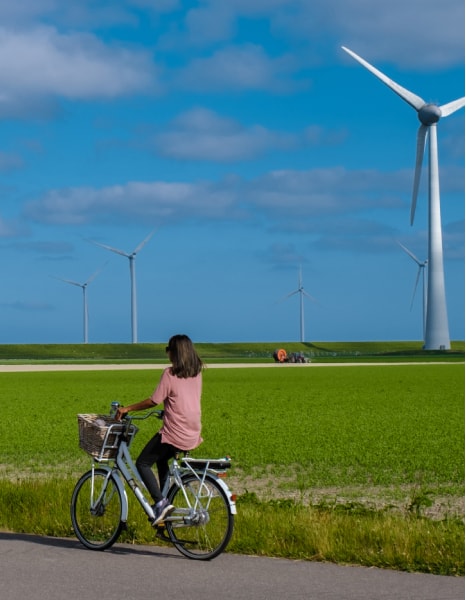As a nation, we are currently in a once in a generation situation where we urgently need to address an infrastructure deficit, enhance energy security, and rapidly progress the needs of net zero commitments.
This is all whilst supporting the Government’s Levelling Up agenda and driving improved value for the customer during an energy price crisis. All these challenges together require access to resources, such as funding, technology and skills, and therefore innovative approaches are certainly needed.
With the imperative to connect 50GW of offshore wind and 10GW of Hydrogen by 2030, fivefold increase in Solar to 2035, new investments in nuclear of 24GW online by 2050 and new Oil & Gas production that also needs to accelerate due to the ongoing war in Ukraine. A new way in the Energy sector must be found to expedite planning and secure resources for the long term whilst balancing the need to protect consumers from price ‘shocks’ the country can ill afford or withstand.
Historically, companies in the utilities sector have carried out the design, build, financing, and operation of their own projects led by a client-side procurement team and UK-based design and build team. As an industry we need to find innovative ways for the sector to work better together, and that very much includes regulators, investors, asset owners, developers, consulting, and contracting organisations to secures the Energy Transition whilst also delivering value to consumers and energy security for the nation.
The opportunity
With a surge in high value energy programmes and true visibility of a long-term pipeline, new business models need to bring together the sector with clients fully understanding and articulating the outcomes they need and how they can leverage the supply chain capability to accelerate and secure the Energy Transition. Simply pushing additional projects through faltering existing models will not work and deliver sub-optimal outcomes in terms of carbon reduction and price to consumers over the long term.
The aim is to reduce whole life costs, promote innovation by bringing fresh ideas, new ways of integrated approaches to deliver the best outcome for consumers in terms of price and service. This is not only a new opportunity at the infrastructure level to design, build and potentially operate, but also opens a significantly larger playing field for potential investors. Companies must very actively and openly weigh up the benefits of introducing competition into their design, construction, financing and/or operation.
In the UK, sufficient capacity does not currently exist in the marketplace to meet the level of UK’s ambition. This is an opportunity for companies to partner with international organisations that can help stimulate and support the UK work force, whilst providing much needed investment and mitigating supply chain risks. There are proven models within other UK utilities that should be considered such as the Thames Tideway Tunnel, creating Bazalgette Tunnel Limited, owned by a consortium of infrastructure investors to finance, build, manage and operate the tunnel. Other initiatives include the ICE’s Project 13 looking to Enterprise type value-based models over transactional cost decisions. There is an urgent need for regulators, asset owners and wider supply chain to come together to pilot and deliver alternative initiatives underpinned by demonstrating benefits and value at every stage of the infrastructure lifecycle. In the Energy sector we have +25 years of pipeline to enable the Energy Transition which presents a once in a lifetime opportunity to deliver new models and improve learning and efficiency over the long-term. Indeed, the wind industry has been an example of what can be achieved, but there’s still a lot more to do.
To ensure opportunities are maximised, it is crucial that the industry considers new collaborative type models and long-term supply chain engagement and investment. A key immediate example is the case for transmission projects where the volume of work is placing a great strain on the supply chain across the UK & Ireland facilitating new large-scale offshore projects and deep onshore reinforcements. To meet the 50GW by 2030 challenge, the transmission projects of circa £20 billion additional works needs to complete before 2030 so that the benefit can be realised.
Across Europe and globally we are seeing similar pressures with clients seeking to secure the limited pool of contractors and manufacturers resulting with inflationary pressure of supply vs demand increasing costs and timelines.
Driving down costs
We have also seen notable examples within the offshore wind sector in significantly driving down costs by driving standardisation, building robust and resilient supply chains coupled with commercial and technical innovation which has resulted now in becoming one of the lowest-cost production of energy when compared to traditional energy production.
The UK has shown the way in these innovative processes to stimulate investment. For the next round of projects, there is a great opportunity to allow incumbents to embrace new commercial opportunities, align new resources and investment into the UK market, de-risk delivery of the wider Energy Transition whilst delivering best value for customers.
Many regulated organisations have experienced strategic finance professionals, contract specialists and established Ecosystem Partners who can work collaboratively with industry regulators and their teams to cocreate solutions that can be taken to Government (including Devolved Governments) for the benefit of taxpayers and bill payers. Therefore, identifying appropriate points of collaboration and creating dynamic approaches between parties is likely to illicit more optimal results.
Consenting risks
In relation to the energy sector, it is clear the Government wants a more streamlined planning process that supports energy security and enables the UK’s zero carbon journey, and it intends to bring forward legislation to improve the NSIP DCO regime for England & Wales. However, as set out in the British Energy Security Strategy, the Government intends to establish a fast-track consenting route for priority cases where quality standards are met, enabled by amendments to the Planning Act 2008 so that the relevant Secretary of State can set shorter examination timescales in certain circumstances.
This needs to be a particular focus for clients, supply chain and key stakeholders to come together to shorten the time to get to site and make the 2030 plan a reality which will further build momentum for the UK to be seen as a global leader for energy transition and security.
Navigating the opportunities
Arcadis can support energy companies in navigating the opportunities and challenges of adopting collaborative models which harness the full potential of the developers, supply chain and wider stakeholders. We have got the experience and perspective from the industries, sectors and market areas that have already embraced these new ways of working and benefits, combined with strong capabilities and international expertise in the energy sector. Our multi-disciplinary teams can support right from inception through to delivery, drawing on our experience of programmes like Sellafield PPP, Surrey County Council Roads Renewal Programme, Her Majesty’s Treasury as an investor in the Environments Agency’s national six-year programme, Manchester Metrolink, Welsh Water’s AMP programmes the Thames Tideway Tunnel, and numerous other technical advisory roles.
Importantly, energy companies should get ahead and start to consider how they can adopt the value-based models that will facilitate and stimulate skills, resources and technology through being a ‘Client of Choice’ for the limited UK energy supply chain. Our global best practice and digital approaches are baking in sustainability, safety and value-based outcomes from the inception of large-scale complex projects and regulated programmes maximising the impact for social-economic benefits for communities, delivering value to regulators and consumers whilst minimising the impact on our fragile environment.
There is clearly a significant need and appetite from government, regulators, and investors to encourage more energy development and procurement. The opportunities for energy developers are clear, and the increase in access to finance and resources is essential if we are to deliver the energy transition at scale and speed. Moreover, the ultimate client – the consumers – will benefit from cost savings and innovation. Intelligent and robust planning and preparation will be key to grasp the opportunities that lie ahead.
By Mark Docherty and Geraint Jones




